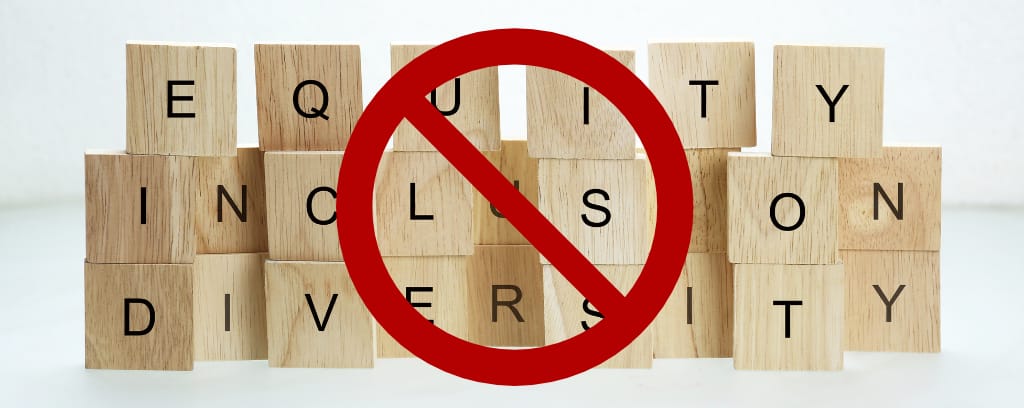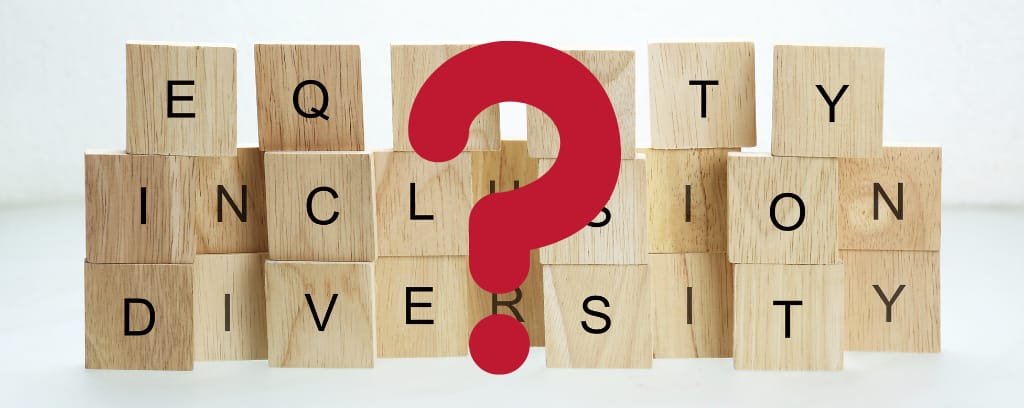DISCLAIMER: This post contains general information about DEI bans and non-discrimination. It is not legal advice. If you are uncertain about your current obligations, we strongly recommend you schedule a consultation with an employment attorney in each of the US jurisdictions where you operate.
Several 2025 Executive Orders prohibit Diversity, Equity, and Inclusion (DEI) programs or cut funding to organizations that have ones that are “illegal” or “divisive.” Several states have introduced or passed legislation that significantly limits, if not bans, DEI programs. These government actions have sparked widespread debate about whether DEI is dead.
In this post and two courses I taught for Lawline, I will answer many of the frequently-asked questions we’re being asked about complying with the bans and existing human rights laws.
State-Level DEI Legislation: A Multi-State Overview
At this time of this update, 80 anti-DEI bills have been introduced or passed across 20 or more states since 2021. Twenty-eight of them have become law since 2023. Most focus on limiting them in public offices, public colleges and universities, and other organizations relying on state and federal funds. In many ways, this seems to make sense.
Although governments have sometimes failed horribly in fulfilling their duties, they are still charged with equal protection of our laws. Because of prior failures and the inequities they caused, some activists call on leaders to turn the tables. Sadly, this has resulted in strong resistance to all DEI initiatives.
Federal Human Rights Laws: Title VII and Beyond
Title VII of the Civil Rights Act of 1964 continue to prohibit discrimination based on:
- Race
- Color
- Religion
- Sex (including pregnancy, childbirth, and related conditions, sexual orientation, and gender identity)
- National origin
Additionally, employers must still comply with the Americans with Disabilities Act (ADA), the Age Discrimination in Employment Act (ADEA), and other federal, state, and local human rights laws. One of the challenges now, at least for publicly-funded organizations, is complying without having dedicated offices to help with DEI. That might not be as difficult as it seems. DEI probably wasn’t as effective as an office or program anyway. These values need to be woven into cultures, systems, and institutions.
Ensuring Compliance Amidst DEI Restrictions
Organizations must navigate these new state laws while still adhering to federal, state, and local human rights obligations. Here are some possible actions that we recommend you review with employment attorneys in each of the jurisdictions you have employees or workers who could be deemed your employees:
- Review why you need DEI in your organization. If you have not yet assessed the diversity of your workforce and asked your employees how they think you are doing with equitable systems and an inclusive culture, now is the time.
- Focus on objective criteria for employment decisions. Since 1964, this has been your mandate. Hiring, promotions, and other processes must be fair, and one of the easiest ways to ensure fairness is to eliminate opportunities for hidden biases to influence decisions. Some effective techniques are:
- Removing from resumes names, graduation dates, and other details that might distract hiring managers from the candidates’ qualifications and predicted ability to perform the essential functions of the job
- Using checklists and scorecards to ensure the anonymous candidates are assessed only for their abilities to do the job
- Polling employees anonymously at least once per year to identify practices with potential discriminatory and disparate impact
- Continue non-discrimination training. In New York, annual sexual harassment prevention training is still mandatory and provides a good model for all anti-discrimination training. You can and must still provide your employees with the knowledge and tools necessary for an inclusive workplace culture grounded in mutual respect. Programs will be scrutinized when they are mandatory, segregated, or contain content that could be considered discriminatory or divisive, such as stereotyping or blaming people for misconduct based on a protected characteristic (e.g., race, sex, color, national origin, religion, age, disability).
Conclusion
While state-level DEI bans present new challenges, employer obligations to prevent unlawful discrimination have not changed. Politicians spew rhetoric that distracts us from this reality. Mainstream media fans the flames. Don’t let them get you off track from any of your lawful business goals. Register here for the “DEI for REAL” webinar series.

